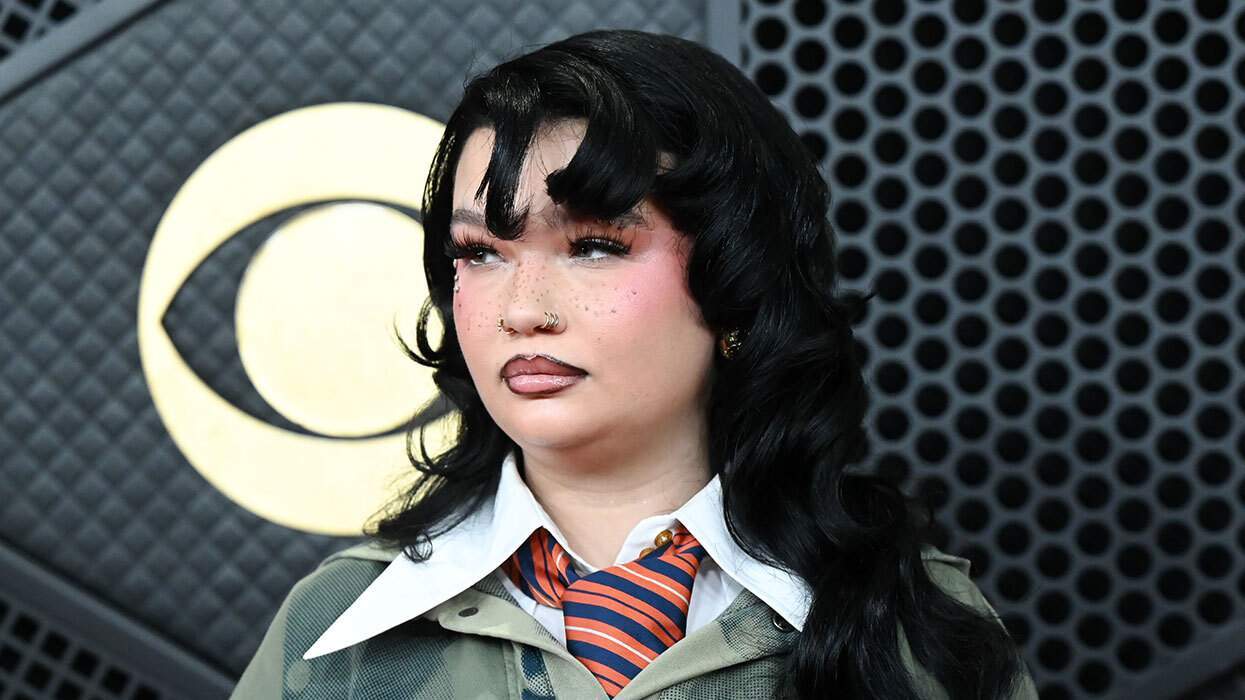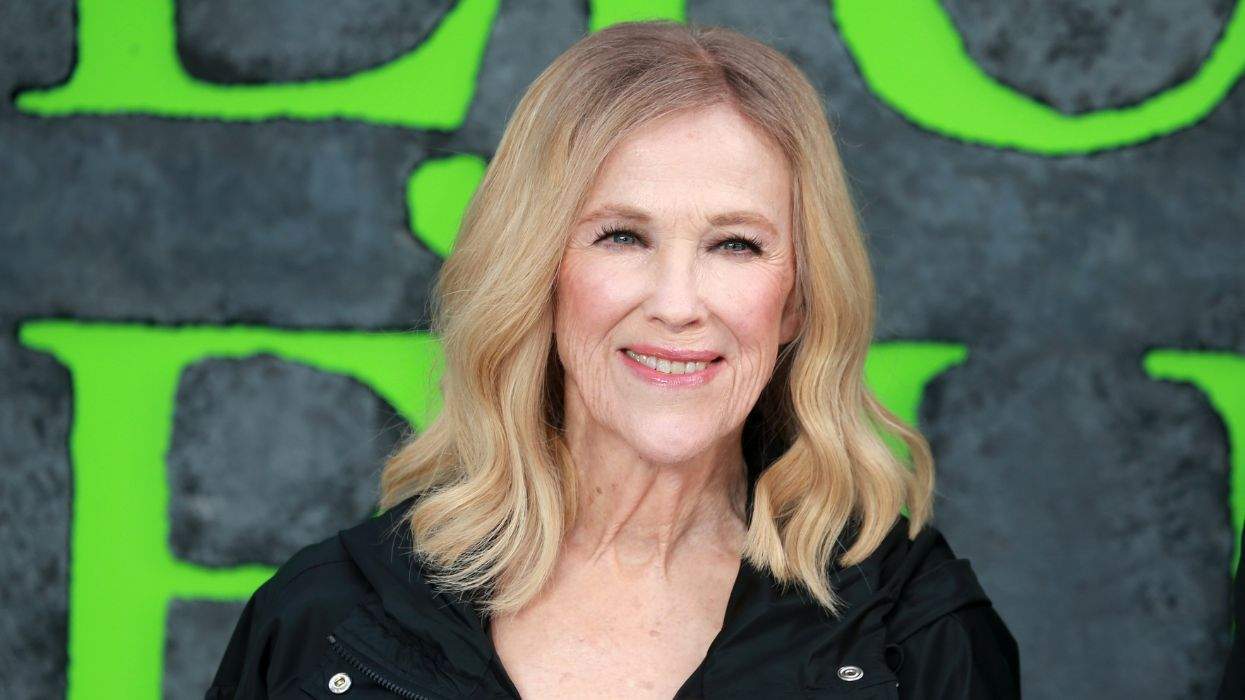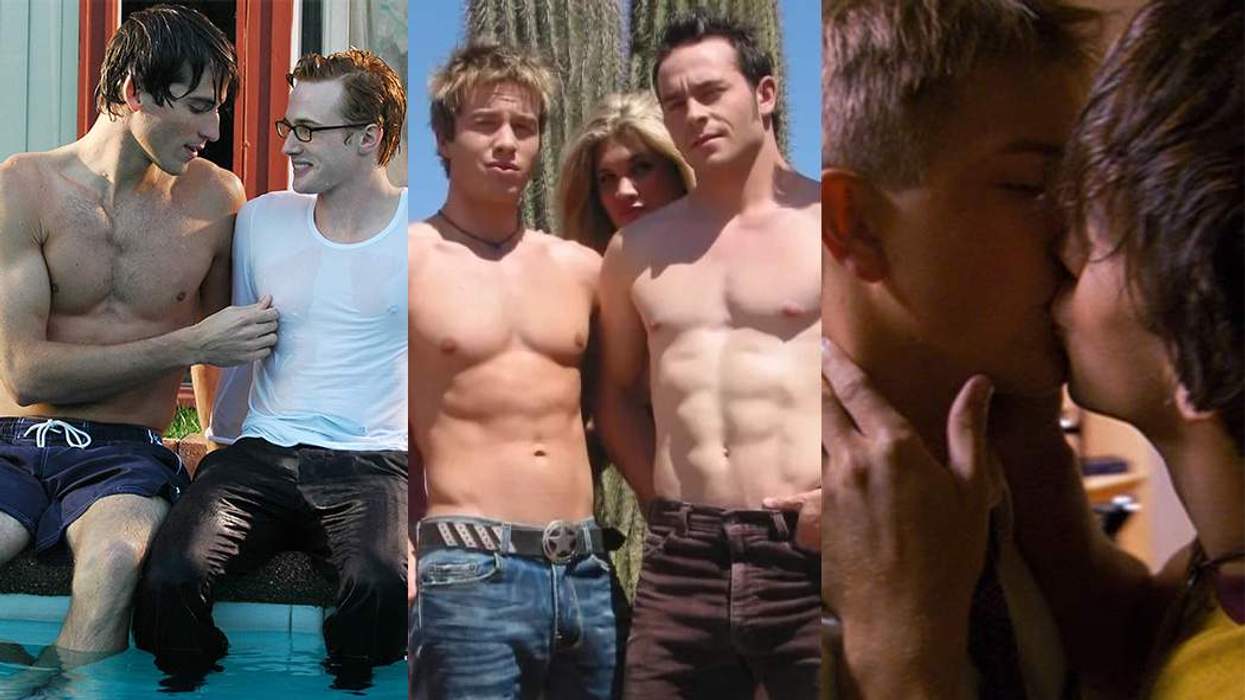As a child, my favorite stories were the ones where the kids deceived the adults in innocent ways. Harriet the Spy and From the Mixed-up Files of Mrs. Basil E. Frankweiler were books about children who created their own systems of value and reality -- who instinctively understood that there was no spoon, that life contained greater mystery than the adults let on, or even knew about, and set out to manifest it for themselves.
Maybe that's why I liked being mistaken for a boy so much when I was young. I lived in an androgynous cocoon of overalls and scruffy Nikes, my hair a drifting afro puff with a ducktail. Shopkeepers and servers in restaurants often complimented my parents on having such a cute son. I reveled in those slippery moments; plus, sometimes I got a free Slurpee out of their clerical errors. Back then, being misgendered was as familiar as being gendered, and I understood that what adults had assigned to me didn't have to belong to me.
Not long ago, someone slid into my DMs inviting me to a meditation circle to hold space after a rash of violence against Black women, including Diamond Stephens and Nia Wilson. The group, the host explained, was only for women and nonbinary femme folks. Soon after, I was also asked to appear on a podcast that centers femme experiences and perspectives. Both times, I hesitated and ultimately declined. I ride for femmehood and everything it stands for, even though it's not a label that I apply to myself. On the inside, I've never stopped feeling like that giddy boy-girl child, even when I choose to drape myself in gold rings, a matte red lip, and Fenty highlighter. There is a delicate balance between the femininity visible on the outside and the masculinity that is always percolating under the surface. Our culture's hyperawareness of categorizing people according to masc and femme characterizations has cracked open my understanding of self and who others might interpret me to be.
On an episode of Femme, Collectively, the podcast on which I wound up not appearing, cohost Rahel Neirene describes her relationship to her femme identity as "centering myself when thinking about my self-love, who I am, what I need in love and friendship, what I need with family. For me, that looks like being honest about my traumas and allowing myself to have a softness and a hardness when I need it. And not being scared of being silent." For Neirene, femmeness deals with expressions of emotional labor -- it's more political than presentation. I feel that: Beyonce's bank balance is femme, the delicate way my stoop cat licks their paw is femme, the way my friend Fran's nails are always perfectly rounded and red, complementing his mustache, is so femme. In Neirene's definition, what femme occupies is in the details: an aesthetic, a texture, a suggestion.
One of my lesbian elders, Alexis DeVeaux, recently reminded me of the time we were traveling together in South Africa. She was decked out in brightly colored lipstick and nail polish, and her custom Converses were embroidered with the words "Leather Daddy," a look she described as "bang, bang, bang."
"But someone called me 'butch' that day -- like, 'Oh, you are so butch,' and I was so surprised, because I am not one or the other," she tells me. "Honey, I queer both the masculine and femme." For DeVeaux -- and me -- masc and femme coexist as collaborators, not competitors. She, like me, wasn't bothered by the categorization but curious about what they read in her that she didn't read in herself. "It's not just us doing the looking," she said. "It's us being looked at."
DeVeaux, who came up and out in the 1960s and 1970s, was taught the dichotomy of butch and femme as specific forms of lesbian desire and community, and also as coping mechanisms and strategic responses to homophobic attitudes in the McCarthy era. She knew those identities as "radical," but also knew that queer masc and femme relationships weren't equal to their heterosexual counterparts, while also not entirely different. During the various rights movements of her time -- Civil, Gay, Women's -- those identities resurfaced in a public way that formed the basis of a liberation front and gay agenda. I'm convinced that we're in another moment that will be remembered as a movement, an unprecedented period of time when everything we know about gender can be shifted and reshaped in the ways that suit us. "We are pushing the language [forward] and pushing against it" at the same time, she says.
"Once we become comfortable with [these terms], they become useless or they lose meaning, whether we understand it or not," DeVeaux says. When queerness becomes more en vogue, danger encroaches. "Capitalism will always appropriate the radical. It will not allow the new idea to survive -- it has to eat it." The profitability and fungibility of queerness can give the impression that we're in a post-queer world. Time is loosening categories, ushered along by the kaleidoscope that social media offers into personal expression. Social media can also flatten categories and reduce them to their most anodyne selves, leaving little room for nuance. Additionally, there's a cultural amnesia with every generation, a reminding that needs to happen: We still have the power and autonomy to shift these paradigms of language and ideas.
Jeffrey McCune, a professor of gender and sexuality studies at Washington University, tells me that he thinks the dominant femme discourse in contemporary culture has shifted to less of a static identity and more of an aesthetic one "that is trying to say something loudly to the public about being gendered in opposition to a larger masculine-dominant culture." McCune has observed a rise in femmeness among the gay male community, too -- one that is forming alongside a Black femme identity, akin to the version of DeVeaux's time, although each variation is taking on its own form. Femme, McCune told me, is a political gesture and creates intentional disruption in ways that expressions of femininity can unwittingly reinforce.
I can still remember a conversation I had with my sister after she came out. "I'm a femme," she said, drawing a dramatic Coca-Cola bottle shape in the air with her exquisitely bejeweled acrylics. "And I date butches." I remember how stifled I felt dating someone who identified as a hard masculine-of-center lesbian. In old-school terms, a "butch." Though she deferred from that category herself, she liked femmes, and for me to present as one. My gender only existed in opposition to hers. We fought over who got to wear the strap-on, and she preferred me in lingerie and grimaced when I came to bed in boxers. In defiance, I cut my hair short and skimped on makeup. A game of chicken with aesthetics. She seemed confused by my face even as she found relief in the reliability of my ass, a softness that was harder to disappear.
These gray areas are as familiar as the butch-femme binary. In a recent interview with Merrill Mushroom, author of a 1980s underground play called Bar Dykes, she talked about her observations of the fluidity of dynamics in the relationships of gay women in the '60s and '70s. "It has to do with one's choice of theater in the way one presents oneself to the world, as well as how one feels on the inside ... Butch is everything that's not femme. And femme is everything that's not butch," she said. "Then there are degrees of each of those. Even the butchest butch has an element of femme in there. And the femmest femme has an element of butch."
I've found femme to be an action verb, a practice, an alchemy. As my friend Tiffany Lee puts it in a piece for The Body Is Not an Apology, "Femme identities ... transcend a simple preference for stereotypically feminine things." It's a sensory experience, in both aesthetics and adornment. Lavender fabric, pink nails, satin auras. Desire, pleasure, joy, leisure, and comfort are things that feel necessary -- new types of coping mechanisms and survival strategies in lieu of a larger organized political movement that agrees on its next steps for a queer agenda. The root of the word "spell" is a narrative, implying our language is magic. The act of naming is akin to the act of manifestation and control. And we need new spells for all the boy-girls growing up right now. So let's cast them together, shall we?
To read more, grab your own copy of Out's March issue featuring "The Mothers and Daughters of the Movement" as the cover on Kindle, Nook and Zinio today, and on newsstands February 26. Preview more of the issue here. Get a year's subscription here.






























